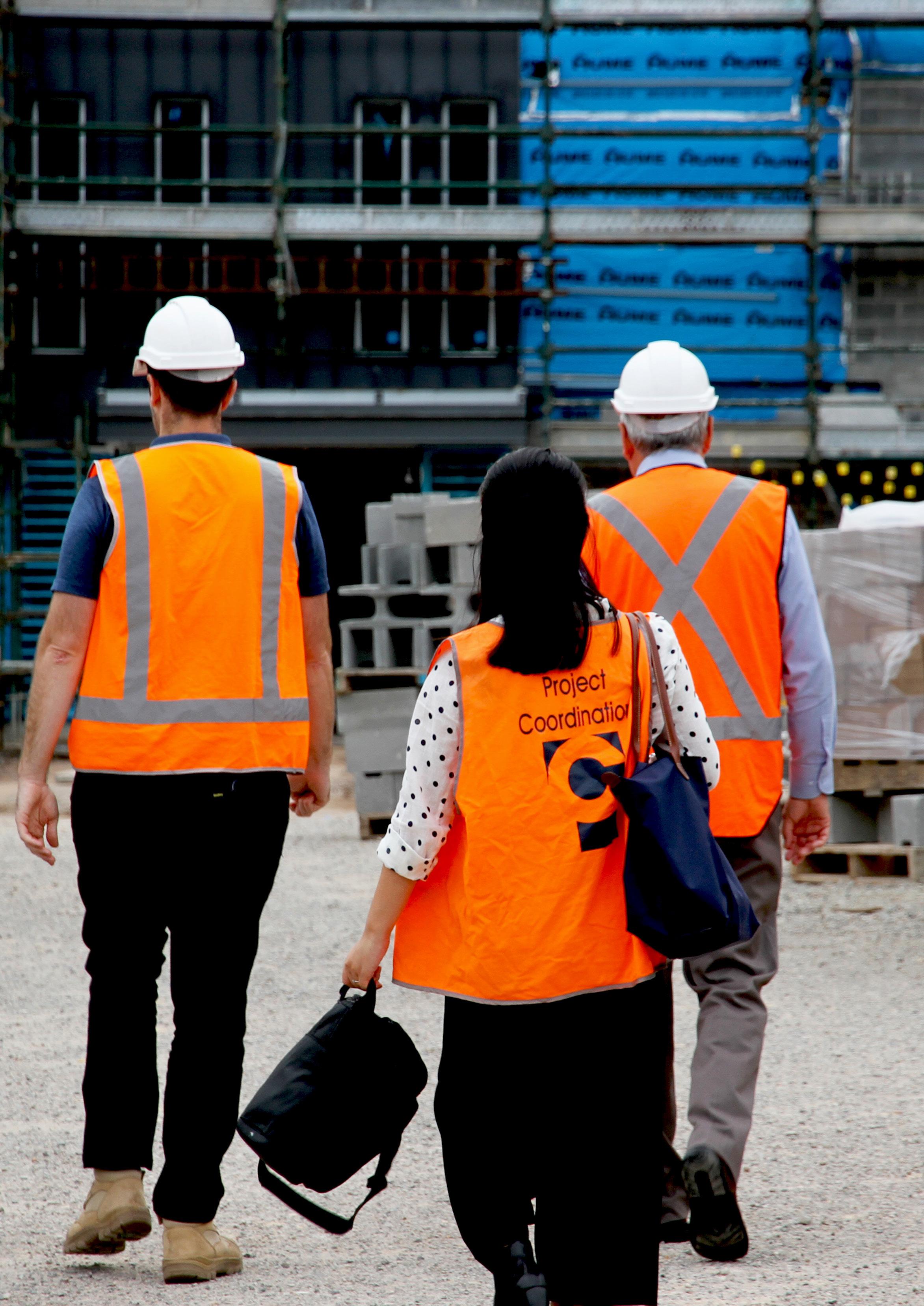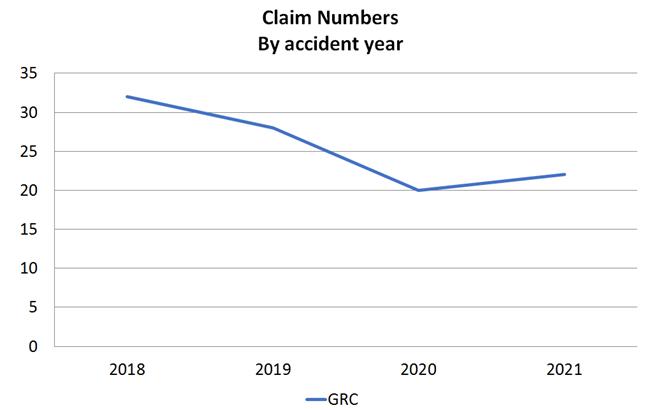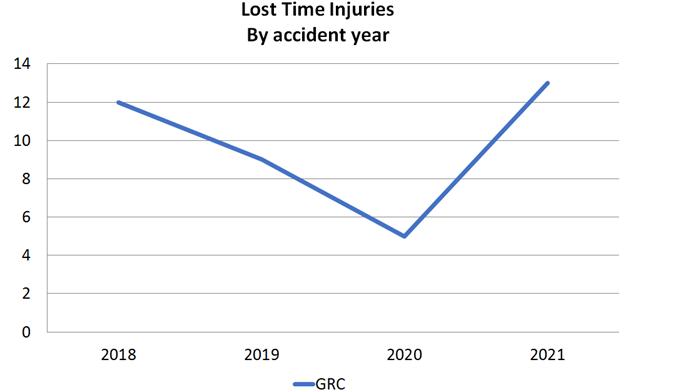
4 minute read
Work health and safety
We have continued to implement and improve safety for workers and comply with our obligations under the NSW Work Health and Safety Act 2011 and NSW Work Health and Safety Regulation 2017. We reviewed the Work Health and Safety (WHS) Policy to reflect the culture of Council and the importance safety plays in everything we do. We have developed the WHS Strategy 2021 - 2024 which is in the first stages of implementation.
Safety training
Each department of Council reviewed its WHS training matrix to ensure training needs are up-to-date and meeting safety needs. A gap analysis was conducted, and a training plan developed and implemented. Some examples of WHS training conducted includes:
• Chemical Accreditation Training • Identify and Respond to Children and Young People at Risk • Provide Cardiopulmonary Resuscitation (CPR) • Provide First Aid • Provide First Aid in Early Learning Setting • Traffic Training - Control and Implement • Traffic Training - Prepare Workzone Traffic
Management Plan • Front End Loader • Chainsaw • Job Specific Manual Handling.
Initiatives
Dragon’s Den
This initiative allowed staff to pitch safety improvement ideas to a panel of management representatives, as is done on the television show ‘Shark Tank’. The pitches included what hazard or risk the idea was targeting, how it would be implemented and the benefits to worker safety. Successful ideas included: • the purchase of stand-up desk modules • using hydraulic lifting trolleys in the libraries • body and car cameras for regulatory enforcement workers.
Musculoskeletal program
Council participated in the SafeWork NSW Musculoskeletal Injury Prevention Program. An inspector evaluated safe working procedures and observed tasks that posed a risk of musculoskeletal injury to workers. The inspector visited libraries, city presentation and early learning centres.
We actioned identified issues to improve safety in the workplace.
Reviewing of prestart site-specific risk assessment
The prestart site-specific risk assessments for operational workers were reviewed, rationalised and extensively consulted with workers. The assessments identify and target hazards that pose significant risks to workers.
We held workshops on site to train staff on the reviewed assessments and sharpen their hazard identification skills. The site-specific risk assessments will be peer reviewed by staff to further increase knowledge.
Chemical management review
Our chemical safe handling procedures look at key areas in an easy to read and understand format to promote safety with handling chemicals. This includes the procurement, storage, use, clean up and disposal of chemicals. These were reviewed and staff trained in the reviewed procedures. The depot chemical disposal facility has been redesigned with better access and signage to ensure excess chemicals and empty chemical containers are disposed of correctly.
Staff engagement
WHS Committee
The WHS committee is the main form of consultation for the WHS Management System and issue resolution across Council. The committee includes employee representatives elected by the staff in their workgroup and management representatives appointed by the General Manager. The committee meets 10 times a year (monthly February to November). In 2020/21 the Committee reviewed the WHS Policy and consulted on the WHS Strategy 2021 - 2024 and the WHS audit program 2021 - 2024.
Peakhurst Park Sports Hub site
Toolbox Talks
Toolbox talks facilitate two-way communication between management and staff on the following topics:
• February - personal protective equipment use, cleaning and storage • March - hazardous manual tasks • April - hazardous chemicals • May - safety when working near a roadside • June - risk assessment – identify hazards, assess the risk, control the risk and review • July - safe work method statements and safe operating procedures.
Safety performance
Incidents, hazards and near misses

Worker compensation claims and Lost Time Injuries
Workers’ compensation performance
While the number of lost time injuries has increased, we are under the industry average as reported by StateCover Mutual Member Analytics Portal.



The year ahead
The WHS Strategy 2021 - 2024 aims to provide a workplace where the safety culture supports people and they are safe, healthy and feel valued. The safety and welfare of the staff is part of everything we do, and we are committed to safety for the long run and not just short-term gains.
The strategy consists of three stages:
• Stage 1: Foundations – Build our WHS capability in terms of: risk management, consultation and cooperation, responsibility for WHS and planning and improvement
• Stage 2: Building our system – Review processes and put plans in place to make workplaces safer, and communicate these to all staff
• Stage 3: Implementation – Implement reviewed safe systems of work, purchase safe equipment, tools and materials, and train staff how use them.
Stage one commences in July 2021 and will be monitored by the Executive team and the WHS Committee.
Hurstville Library staff at Family Storytime

Detail of immersive multisensory installation Portal by Bliss Cavanagh for Un[contained] Arts Festival











